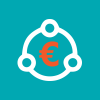-
0 comments
One key objective of circular economy is to stimulate resource efficiency by the uptake of the use of secondary raw materials from waste. The Urban Agenda Partnership on Circular Economy has identified several barriers and bottlenecks regarding the use of secondary raw materials (recycling) or products (re-use) originating from waste streams.
/futurium/en/file/pictouaceactionplanpage1jpgpicto_ua_ce_action_plan_page_1.jpg

As a general rule products or materials that enter the waste stream are subject to a set of regulatory measures to protect human health and the environment against any harm from those products and materials. These regulations make it difficult, if not impossible to redirect waste fractions back into the economic cycle for re-use or recycling. Where hazardous substances are concerned this makes very good sense. There are, however, circumstances under which the rather strict regime of waste legislation is not needed and can even be counterproductive for the circular economy.
/futurium/en/file/preventionjpgprevention.jpg

The removal of barriers and improving the resource perspective in waste legislation is important to facilitate the circular economy and to stimulate the uptake of the use of secondary raw materials. The Partnership has asked the Dutch Centre for European Law carry out a basic evaluation of relevant EU legal frameworks from a circular economy perspective. We want to backup and enrich this analysis with feedback from the everyday practice of cities. This feedback, both in terms of barriers and bottlenecks as well as good practices, will provide valuable input to the analytical work of the Partnership and will contribute to the recommendations that the Partnership will draft to improve the legislative framework.
As lead partner for this action on better regulation the city of The Hague kindly invites you to share your experiences by filling in a questionnaire for one or more relevant resource flows from (municipal) waste. Relevant resource flow can be:
- plastics
- textiles,
- WEEE,
- bulky waste,
- bio-waste or,
- batteries.
But they can also represent more specific fractions of these types of waste, like bottlecaps or discarded DVD players. For every resource flow you can provide feedback on relevant EU legislation. The main legislative acts under review are the Waste Framework Directive, the Packaging and Packaging Waste Directive, the Batteries Directive and the WEEE Directive that were revised as a result of the adoption of the EU Circular Economy Package in 2018. Of course, there is room to include other relevant legislation in your feedback.
Given the complexity of the issues at hand and the qualitative nature of the questionnaire, the Partnership has opted for a downloadable interactive pfd. If you want to provide us with your feedback on more than one resource flow, please fill in a separate questionnaire for every individual resource flow.
The questionnaire can be downloaded at https://europadecentraal.nl/wp-content/uploads/2019/06/Questionnaire-on-EU-waste-legislation.pdf
We kindly ask you to return your questionnaire(s) before September 1 to our central email box: info@bright-tool.eu
Alongside the questionnaire two annexes are available that provide background information on the revisions of relevant waste legislation:
o Annex I: comprehensive analysis of the (revised) Waste Framework Directive

